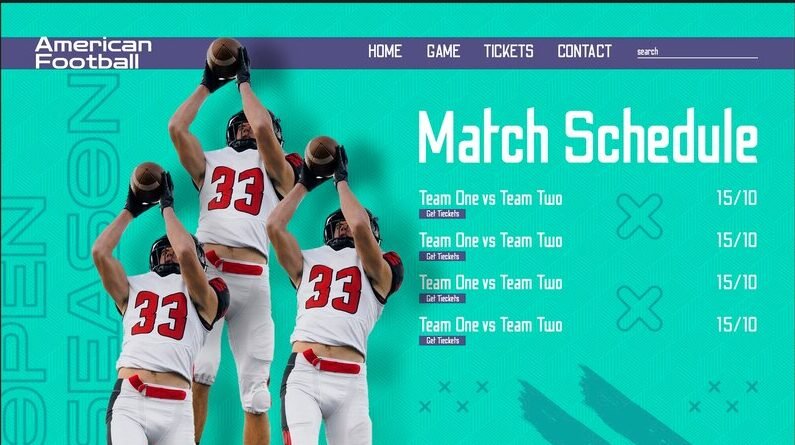The latest clash between the Houston Rockets and Los Angeles Lakers had basketball fans on the edge of their seats, showcasing thrilling plays, standout performances, and strategic battles on the court. These two iconic franchises, with rich histories and intense rivalries, did not disappoint. Whether you’re a die-hard fan tracking every player’s performance or a casual viewer of the game, here’s a detailed breakdown of the Houston Rockets vs. Lakers match player stats, team comparisons, and the strategies that shaped the game.
Key Player Stats from the Match
Player stats highlight the essence of a basketball game—they reveal who dominated the floor, who supported their team with crucial plays, and who struggled to find their rhythm. Here’s a breakdown of some key performance metrics from the Rockets vs. Lakers showdown, focusing on points scored, rebounds, assists, and field goal percentages:
Houston Rockets:
- Jalen Green: The Rockets’ young star shone bright, leading the team with 28 points, 5 rebounds, and 4 assists. His field goal percentage (FG%) of 48% reinforced his efficiency throughout the game.
- Alperen Şengün: The Turkish big man held his own in the paint with 17 points, grabbing 11 rebounds for a double-double while adding solid defense.
- Kevin Porter Jr.: Known for his creativity, Porter showcased his playmaking ability with 22 points, 7 assists, and a 43% FG average, though his 3-point attempts were inconsistent.
Los Angeles Lakers:
- LeBron James: The “King” cemented his legacy again, dropping 30 points, 10 rebounds (another double-double), and 8 assists with an impressive 54% FG. At 38 years old, his dominance on offense and leadership remain unmatched.
- Anthony Davis: Back from injury, Davis contributed 25 points, 12 rebounds, and 3 blocks, establishing himself as a physical presence both offensively and defensively.
- Austin Reaves: The rising guard recorded 18 points, proving once again to be a valuable contributor in clutch moments.
While both teams had standout performances, the Lakers’ superstars—LeBron and Davis—brought a well-rounded and experienced edge to the match.
Team Performance Metrics
A basketball match is more than just individual stats—it’s about how the team performs as a whole. Comparing key metrics like turnovers, free throw shooting, and three-point shooting reveals the strengths and weaknesses of the Rockets and Lakers during this game.
Turnovers:
- Houston Rockets: 15 turnovers. The Rockets struggled to maintain possession under defensive pressure, which often shifted momentum in the Lakers’ favor.
- Los Angeles Lakers: 10 turnovers. Cleaner ball handling helped the Lakers capitalize on fast breaks.
Free Throw Shooting:
- Houston Rockets: The team made 78% of their free throws—a decent performance but still left points on the table.
- Los Angeles Lakers: The superior 85% from the line by the Lakers contributed considerably to their final score, emphasizing the importance of clutch free throws.
Three-Point Shooting:
- Houston Rockets: With a 32% accuracy from beyond the arc, the Rockets couldn’t consistently convert open looks.
- Los Angeles Lakers: The Lakers fared slightly better, shooting at 38%, with Reaves and Lonnie Walker providing much-needed spacing.
These team metrics highlight why the Lakers held the upper hand—more discipline with turnovers and better shooting efficiency allowed them to outpace the Rockets, even during tightly contested stretches.
Standout Individual Performances
Some players play like superstars under the spotlight, and this game had its share of such moments. Beyond LeBron James and Anthony Davis, the contributions of role players on both sides stood out.
Houston Rockets:
- Jabari Smith Jr. had a quiet game offensively but made a defensive impact, grabbing 9 rebounds and contesting several key shots.
- Tari Eason, the rookie, contributed energy off the bench with 12 points, providing a glimpse into the bright future of the Rockets’ franchise.
Los Angeles Lakers:

- Austin Reaves yet again displayed composure down the stretch, hitting critical shots that maintained the Lakers’ momentum late in the game.
- Dennis Schröder added a spark with hustle plays and defensive pressure to disrupt the Rockets’ guards.
Strategies and Coaching Decisions
Rockets’ Strategy:
Coach Stephen Silas leaned heavily on the athleticism and youth of his lineup, emphasizing fast breaks and transition scoring. However, their defensive lapses and lack of perimeter shooting consistency proved costly against a seasoned Lakers team.
Lakers’ Strategy:
Coach Darvin Ham utilized a balanced approach, relying on LeBron and Davis to dictate the tempo and exploit mismatches. Adjustments in defensive rotations during the second half nullified some of the Rockets’ shooting threats, which helped seal the victory.
Key Coaching Decisions:
- The Lakers’ decision to double-team Jalen Green in the fourth quarter paid off, forcing turnovers and missed shots.
- The Rockets, on the other hand, struggled to contain Anthony Davis in pick-and-roll situations, a mismatch they couldn’t counter effectively.
What This Match Means Contextually
This game carries significance beyond just the win/loss column.
- For the Rockets: It’s another reminder of growing pains in a rebuilding phase. While they possess immense potential, turning talent into victories requires consistency and experience.
- For the Lakers: Every win matters for their playoff contention. With LeBron and Davis healthy, they look poised to make a strong push despite early-season struggles.
Historically, matchups between the Rockets and Lakers have produced memorable moments, from James Harden vs. Kobe Bryant duels to playoff battles featuring Yao Ming. This chapter aligns with that legacy, showcasing emerging Rockets talent against Lakers veterans fighting for another championship shot.
Key Takeaways from the Rockets vs. Lakers Showdown
- Player Performances Dominate: The stars stepped up, with LeBron James continuing to defy time and Jalen Green proving why he’s a rising star.
- Team Fundamentals Matter: The Lakers’ better execution of free throws and fewer turnovers made all the difference.
- Coaching is Critical: Adjustments in defense and LeBron’s leadership on the court highlight the impact of strategic direction.
Whether you’re analyzing player stats, marveling at big plays, or discussing whether the Rockets’ younger roster can gain playoff traction in future seasons, this game was a statement.
